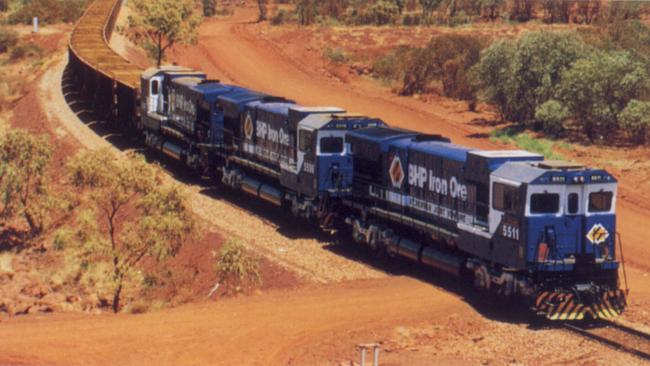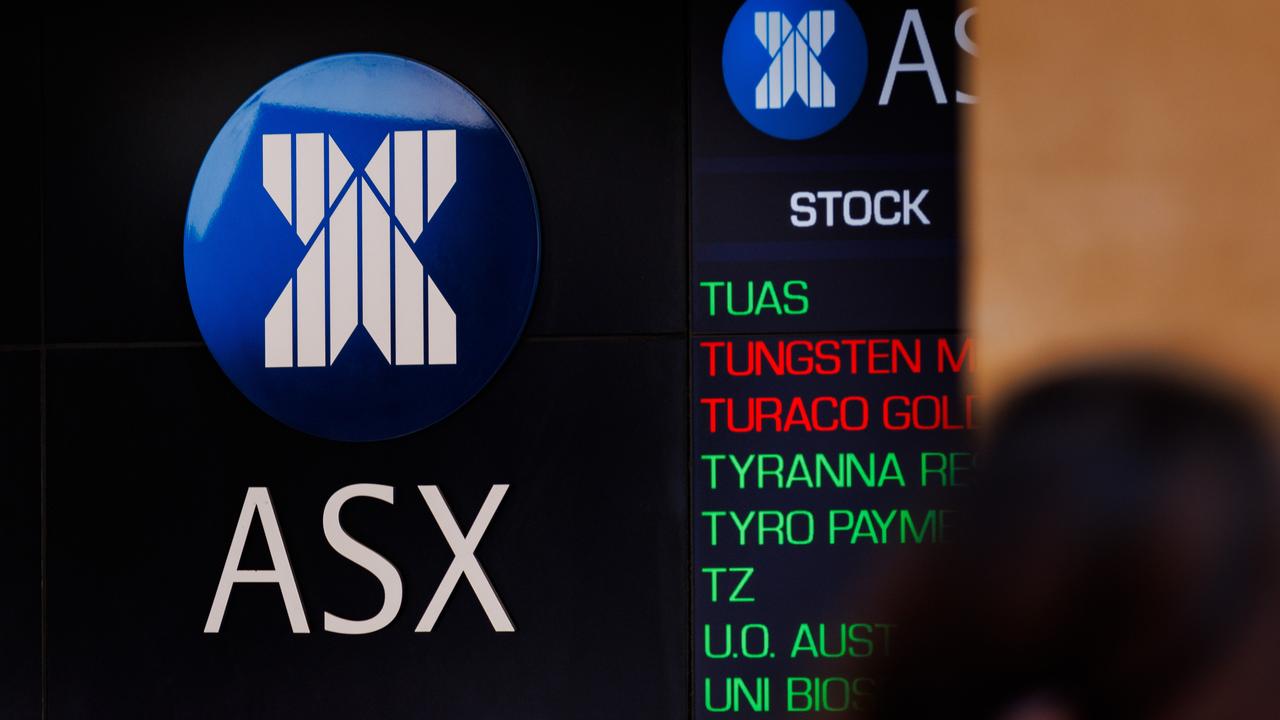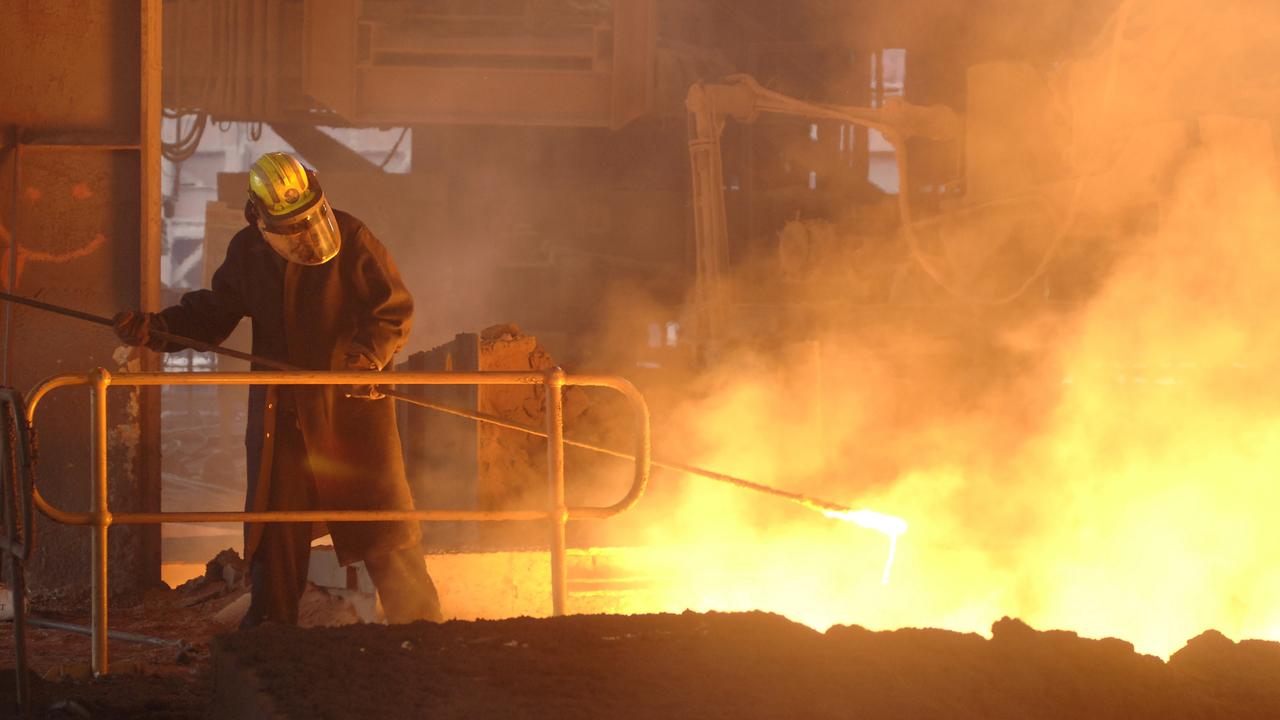BHP told to negotiate first union rail driver agreement in seven years
Shortened rosters introduced during the pandemic are at the heart of a tension between BHP and in-demand train drivers.

Mining
Don't miss out on the headlines from Mining. Followed categories will be added to My News.
Fresh stresses are still appearing in the superheated West Australian resources sector over labour shortages and working conditions, despite the state government’s moves to reopen borders in February, as BHP and mining unions head to the negotiating table over pay and conditions for train drivers.
A shortage of drivers capable of driving the massive trains that carry ore between Pilbara mines and Port Hedland has been a key restraint on BHP’s ability to take advantage of soaring iron ore prices over the past year.
In its September quarter production report BHP said a shortage of skilled drivers was a factor in a 4 per cent dip in exports compared to the June period.
The state’s hard border policy has been a major factor in BHP’s problem, with the Labor government of Premier Mark McGowan declaring early in the pandemic it would no longer allow mining companies to use interstate workers on a fly-in fly-out basis, pushing big miners to relocate workers into WA instead.
That affected a substantial portion of BHP’s train drivers, with the company forced to shorten rosters – from two-weeks on, two-weeks off, to only a single week of leave after a two-week session – and launch new training programs to recruit 200 more drivers to fill gaps in its workforce.
Unrest over rosters and pay and conditions has now handed the Mining and Energy Union the latest in a series of wins in its campaign to win a presence on Pilbara mine sites, after more than 70 per cent of the 400 BHP train drivers working in the Pilbara voted in favour of negotiating their first collective agreement in more than seven years. It is understood the Fair Work Commission issued informal instructions earlier this week requiring BHP and the MEU to start talks over a new enterprise agreement in the new year. The last enterprise agreement covering BHP rail drivers expired in 2018.
It is understood attrition among rail drivers in the Pilbara has surged over the last year, with up to 20 per cent of skilled workers looking outside the industry for work, or looking to leave WA to find alternative jobs in their home states.
WA MEU state secretary Greg Busson said the union’s members were putting together a log of claims ahead of talks, scheduled to begin early in 2022, including the return of longer rostered periods off, pay parity between workers and a requirement BHP issue recognised qualifications to the drivers it trains, so they can more easily find work in the future. “These workers have bent over backwards to keep this industry on its feet during Covid,” Mr Busson said.
“They moved from a two week on, two week off roster to two week on one week off, but these sacrifices have meant nothing to BHP – they still refused to meet with their workers.
“Many national FIFO workers have had to relocate to WA during Covid, leaving their kids and partners behind. For BHP Covid restrictions have been disruptive; for their workers it’s been personal.”
A spokeswoman for BHP said the company had engaged in an “informal process” in the Fair Work Commission to discuss the MEU’s application for the right to negotiate a collective agreement.
“BHP has committed to participate in discussions with the union in good faith,” she said.
Originally published as BHP told to negotiate first union rail driver agreement in seven years



